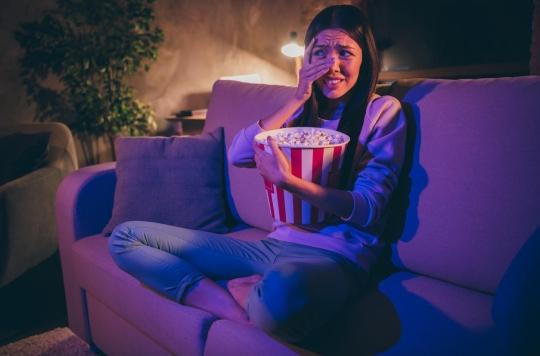How to explain the attraction for horror films? What happens in the brain when we are afraid? And why do some people want more than others to experience these distressing situations?

- Fear is a subjective experience that can be very different for each person.
- Several neurobiological reasons can explain this attraction for horror films.
Zombies, serial killers, ghosts, end of the apocalyptic world… Horror film scriptwriters have a field day writing stories that are each more frightening than the next. But how to explain this enthusiasm? Why do some people love feeling this angst when others can’t stand it? “Part of it comes down to the many ways our brain experiences, interprets, and contextualizes fear.”, explains Ajay Satpute, assistant professor of psychology at Northeastern. This specialist in neurology studies the mechanisms of fear in the human brain not as an instinctive set of survival behaviors, but as a subjective experience, which can be very different for each person.
Fears are not innate but learned by the brain
Although fears are powerful emotions, they are not necessarily innate to humans. In accordance with the theory of constructivism in psychology, the professor explains that human beings are born with the capacity to feel affective states (pleasure and pain, drowsiness and excitement), but emotions, such as fear, are learned. The brain learns them by interpreting and contextualizing certain signals sent by the body.
In his affective and brain sciences laboratory, Ajay Satpute has also studied which parts of the brain activate when we are afraid. “The prevailing hypothesis is that there is a central fear network or central fear zones (…) that will predict fear in all situations“, he relates. But in his study, the researcher found that there was not just a network of fears but several regions of the brain that react to them. According to him, the human brain would therefore react differently to a horror movie compared to a truly deadly situation.
Why do some people crave the harrowing experience of the horror movie?
According to the professor of neuroscience, several neurobiological reasons can explain this attraction for scary films.
For some, it’s the search for excitement. Indeed, the work of one of his students shows that voluntary exposure to pain can cause someone to release endorphins and feel better right after. “When you’re scared it’s not great in the moment, but when it goes away there’s this release and euphoria and it’s really rewarding”, he explains. “If you really want to have that waking moment in life where all the senses are activated, a little fear can’t hurt.”
Another possible explanation: scary films could, in a way, serve as educational material for the brain. Ajay Satpute calls this “indirect fear”.
“At least since we started telling ourselves stories, we can imagine that it is a way of transmitting and learning. In this sense, it is as if the brain uses this information to build mental models to guide our behavior if these situations come our way.”

















